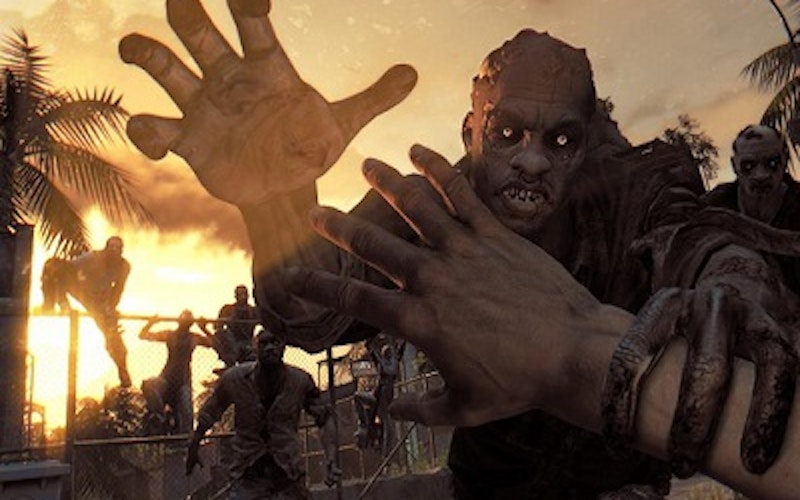
Games
Dying Light and the limitations of violence
I recently found myself behind on an important project, working frantically to meet the deadline. When I was almost done my computer crashed, losing several hours of work. I wanted to scream and punch my computer. Thankfully, I did neither, but I did punch my desk. For the next two weeks, every time I typed, I felt the consequences of this foolish, violent action.
We’ve all been there. We’ve faced the frustration of the imperfect world around us and given in to the temptation to lash out in violence, only to find our problems compounded. Sometimes, I think that this is why I enjoy video games so much. Games tend to present us with imperfect worlds where violence is productive and we don’t have to deal with the throbbing pain that comes from punching things.
One thing Christianity and video games share is an understanding that we live in a broken world. The brokenness in most game worlds, however, can generally be fixed by pulling triggers and punching things. While games acknowledge depravity, they tend to do so cheaply. Brokenness is easily overcome and the means players use to navigate their broken worlds aren’t particularly nuanced. Navigating the real world requires wisdom, patience and grace, because the depravity around us is far-reaching and oppressive.
When I loaded up Dying Light, a new first-person zombie survival game, I assumed its world would be similarly cheap. What I initially found, however, was a game whose depraved world was not easily overcome - a world where violence is more often punishing than rewarding, a world where violence is costly.
Every time I attempted a direct, violent approach, I was foiled.
Dying Light puts players in control of Kyle Crane, a special agent of the GRE (Global Relief Effort). Crane is sent into Harran, a city that has been ravaged by a viral outbreak that has turned most of the population into aggressive, zombie-like creatures. Crane’s mission is to find and bring to justice a man who is exploiting the survivors of Haran and blackmailing the GRE.
As I began playing, it wasn’t long until I got my hands on a weapon - a wrench. The minute I laid hands on this wrench, I struck a zombie in the shoulder and then in the leg, knocking it down. Not only did the zombie live, but I began stumbling and my vision became blurred as two other zombies joined the fight. Dying Light, you see, employs a stamina mechanic that severely limits the ability to defend yourself, much less assault the game’s enemies. As soon as I regained my composure, I turned and ran.
A few hours later, when I managed to procure a more impressive weapon, I was similarly foiled as that weapon broke shortly after I employed it. I finally got my hands on a gun about 12 hours into Dying Light and I opened fire on a group of zombies. This attracted a swarm and I soon found myself overwhelmed and killed. Every time I attempted a direct, violent approach, I was foiled. In these moments, Dying Light refused to allow me to indulge my violent fantasies and instead kept reminding me of Crane’s human limitations
I have only played about 15 to 20 hours of Dying Light. From what I am told, further into the game, players can unlock abilities that allow them to use violence more efficiently. By the time most players do so, however, I suspect they will have been so thoroughly punished that many will be reticent to indiscriminately employ violence. Like my decision to punch my desk, violence in Dying Light tends to sting. It isn’t productive and often only adds frustration to an already frustrated world. Dying Light is a rare game in the way it challenges players to navigate a broken world with thoughtful deliberation rather than violence.
Topics: Games, Culture At Large, Arts & Leisure